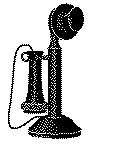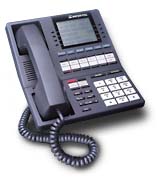Message-ID: <20220925133728.GA404064@telecomdigest.us>
Date: Sun, 25 Sep 2022 13:37:28 +0000
From: Bill Horne <malQRMassimilation@gmail.com>
Subject: [telecom] CASEY: 'Better Call Dan' tackles Radford couple's T-Mobile
billing snafu
Opinion By Dan Casey
Nancy Landes of Radford is what I call a “smart consumer.”
When Landes experiences a consumer issue with a major corporation, she
picks up the phone and calls their customer service line. But first
she grabs a pen and some paper.
She keeps a careful chronology of every contact, and notes the name of
the person to whom she spoke, the time of the call, how long it lasted
and what the customer service representative tells her.
https://roanoke.com/news/local/casey-better-call-dan-tackles-radford-couple-s-t-mobile-billing-snafu/article_a64af9a8-3b74-11ed-a5c5-df257215a22e.html
--
(Please remove QRM from my email address to write to me directly)
Message-ID: <tgngg6$30het$9@dont-email.me>
Date: 24 Sep 2022 19:58:29 +0200
From: "Marco Moock" <mo01@posteo.de>
Subject: Re: [telecom] Callcentric service still blocked
Am 23.09.2022 um 16:08:31 Uhr schrieb Bill Horne:
> told me that the problem could be addressed by paying for a fixed IP
> address. The message from Zito Media is clear, although not subtle:
> "Pay more."
Do you have IPv4 and IPv6 connectivity? IPv6 is faster because no NAT
is needed.
There are still many IPv4-only servers that are only accessible slowly
because NAT routers are overloaded, especially when using CG-NAT or
DS-Lite.
Message-ID: <e1d0a5b4773dedfad907c637a69d442f.squirrel@hallikainen.org>
Date: 26 Sep 2022 19:45:59 -0700
From: "Harold Hallikainen" <harold@hallikainen.org>
Subject: [telecom] ISP and CDN Peering
https://papers.ssrn.com/sol3/papers.cfm?abstract_id=4178682 is an
interesting article on ISP and CDN peering. It is similar to reciprocal
compensation between telecom carriers where one pays another for the "last
mile" delivery of a call. Reciprocal compensation lead to traffic pumping
free conference call services.
On the Internet side (it's still telecom, right?), ISPs exchange traffic
at IXP (Internet Exchange Points). To get free exchange, ISPs generally
require a less than 2:1 imbalance in traffic (incoming vs outgoing) and
require the ISP wishing to peer to peer at several IXPs. There's some
interesting terminology used. In "hot potato" routing, traffic is handed
off at the IXP that is closest to the originator of the traffic, requiring
the one who is handed the traffic to transport it a longer distance (which
increases cost) to the final customer. In "cold potato" routing, the
carrier that wants to hand off the traffic hands it off at the IXP closest
to the destination so the original carrier carries the traffic for a
longer distance and incurs those costs.
They then go on to discuss Content Delivery Networks that deliver content
like Netflix. The paper appears to advocate free peering of CDNs
regardless of the traffic imbalance if cold potato routing is used. The
ISP the content is being handed to only has to carry the traffic a short
distance to the customer.
Division of cost of carriage is an OLD problem going back to the 1800s. As
part of the General Postal Union, Each country should retain all money it
has collected for international postage. The assumption was that there was
balance between sending and receiving mail, so complex division of charges
was not necessary. The originating country got the postage fee. In the
return letter, the other country got the fee. So, today, as with then, we
look at traffic imbalance to determine if peering should be free.
Harold
--
FCC Rules Updated Daily at http://www.hallikainen.com
Not sent from an iPhone.
|



